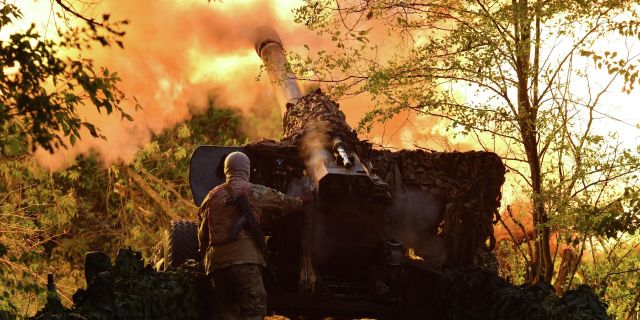The rocket that fell in Poland is a wake—up call, writes The Hill. The author of the article believes that this incident was a rehearsal and a test of how the world — and, in particular, the United States — would react if the Ukrainian conflict spilled out of the country and spread to Europe.
Tara SonenshineDuring conflicts, incidents happen.
At an emergency NATO meeting, participants faced the prospect of expanding the Russian-Ukrainian conflict to European proportions against the backdrop of an international meeting of leaders, including President Biden, in Bali, Indonesia.
Right during the negotiations, a rocket fell on the territory of Poland, a NATO country. Initially, it was impossible to answer unequivocally what actually happened: the Russian missile flew the wrong way, Russia deliberately struck Polish territory, or it was a Ukrainian missile fired to shoot down a Russian one. Anyway, the rocket landed just a few kilometers from the Polish border with Ukraine.
NATO immediately resorted to the application of the fourth article of its Charter. The North Atlantic Alliance called for consultations with all members to determine the cause.
The Polish President and the NATO Secretary General stated in their initial assessments that the explosion, which killed two Polish citizens, was most likely provoked by the work of Ukrainian air defense systems.
This incident is a test of what can happen when some event has a cascading effect on the further development of the active phase of the conflict. Russia has not yet launched an offensive against Ukraine's neighbors, as this could encourage NATO to respond within the framework of the fifth article of its Charter, according to which, in the event of an attack on an alliance member, other member countries should respond to it, including by military methods.
Countries such as Lithuania, Latvia and Estonia are closely watching how NATO will behave. They know perfectly well that in the event of an incident or a deliberate attack by Russia, any of the Baltic countries will have to react.
Winter is already close, but the Russian-Ukrainian saga, with all its ups and downs, is still going on.
In recent weeks, Ukraine has managed to push back Russian troops and force them to withdraw from Kherson. On the streets of the destroyed city, you can now see happy Ukrainians, while Russian troops are leaving their positions, leaving behind mines and ruins.
But despite the successes on the ground in Kherson, the aerial bombardment has not stopped yet. This week, Russia launched a large-scale missile attack on Ukraine: about 90 missiles were fired in total, the main targets were the country's energy infrastructure facilities. Putin has literally plunged millions of Ukrainians into darkness, and the whole world into ignorance about the Kremlin's next steps.
But even if the missile fell by mistake during the interception by the Ukrainians, we must come to terms with the fact that until the conflict stops, we will face daily the threat of its expansion to European proportions and the involvement of the United States in it.
How would the Americans react if this missile strike was actually a deliberate attack on Europe?
Tired of the midterm elections, Americans are probably not in a position to think about a larger conflict in Europe right now. Given the small preponderance of political parties in the elections and the unsettled balance of power in Congress, any discussion concerning military forces will cause controversy. With Thanksgiving approaching and the holidays that members of Congress will spend at home, there is no worse time to make a centralized decision.
If we find ourselves on the verge of a serious escalation, the Americans will think that their troops are being dragged into a dangerous situation. According to the results of the October poll, three out of four Americans believe that we should support Ukraine. But in fact, they mean the supply of weapons, not the sending of troops.
Afghanistan and Iraq have clearly shown that Americans eventually became disillusioned with direct military intervention in conflicts abroad. Both Democrats and Republicans have expressed concern about American involvement in regional crises.
Would it be different in Europe?
There are many citizens living in the United States with European roots and ethnic ties to Ukraine and its neighboring countries, and perhaps they would like more American participation. About ten million American citizens are of Polish origin, and several million more come from countries neighboring Poland.
Poland is a major ally of the United States and one of the strongest partners in the conflict. American troops are stationed there, which work closely with NATO not only on the Ukrainian issue, but also in general in the areas of global security, nuclear nonproliferation, energy and all those issues that affect our daily lives.
The rocket that fell in Poland is a wake—up call. It was a rehearsal of how the world would react if the Third World War began to unfold. We need to seriously discuss the possibility of a larger conflict while there is time — before we have to decide how far the United States is willing to go to protect Ukraine.

